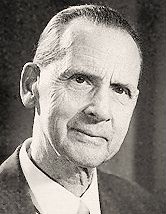Biography
Eichner was born to Johann Andreas Eichner (1694–1768), a court musician to the court of Waldeck. His father provided him with his primary musical education. He became widely known as a virtuoso bassoonist throughout Europe as a result. In 1762 he entered into the service of Duke Christian IV of Zweibrücken as a violinist. In 1768, he became the concertmaster of the Zweibrücken court orchestra, where he remained until 1772. He was highly respected by his contemporaries and achieved international recognition as an accomplished composer, bassoonist, and concertmaster during his lifetime. Eichner, however, died young and was quickly forgotten. To musicologists, he is known as a representative of the Mannheim School. His 31 symphonies and 20 concertos comprise the main body of his works, but he also composed chamber music including Six Flute Quartets op. 4. In 1772 his compositions were published almost simultaneously in Paris, London, and Amsterdam. Christian Friedrich Daniel Schubart praised Eichner's works in 1784 for their gracious charm and "melting sweetness". His Harp Concerto in D Major op. 9 (movements: Allegro, Andante, and Tempo di Minoetto) is performed to this day. His daughter was composer Adelheid Maria Eichner.
A concerto is, from the late Baroque era, mostly understood as an instrumental composition, written for one or more soloists accompanied by an orchestra or other ensemble. The typical three-movement structure, a slow movement preceded and followed by fast movements, became a standard from the early 18th century.

Robert Marcel Casadesus was a renowned 20th-century French pianist and composer. He was the most prominent member of a distinguished musical family, being the nephew of Henri Casadesus and Marius Casadesus, husband of Gaby Casadesus, and father of Jean Casadesus.

Johann Wilhelm Wilms was a Dutch-German composer, best known for setting the poem Wien Neêrlands Bloed to music, which served as the Dutch national anthem from 1815 to 1932.
Arnold Atkinson Cooke was a British composer, a pupil of Paul Hindemith. He wrote a considerable amount of chamber music, including five string quartets and many instrumental sonatas, much of which is only now becoming accessible through modern recordings. Cooke also composed two operas, six symphonies and several concertos.
Concertino is the diminutive of concerto, thus literally a small or short concerto.

William Waterhouse was an English bassoonist and musicologist. He played with notable orchestras, was a member of the Melos Ensemble, professor at the Royal Northern College of Music, author of the Yehudi Menuhin Music Guide "Bassoon", of The New Langwill Index, and contributor to the New Grove Dictionary of Music and Musicians.
Homotonal (same-tonality) is a technical musical term that describes the tonal structure of multi-movement compositions. It was introduced into musicology by Hans Keller. According to Keller's definition and usage, a multi-movement composition is 'homotonal' if all of its movements have the same tonic (keynote).
Zdeněk Lukáš was a Czech composer. He authored over 330 works.

Johann Andreas Amon was a German virtuoso guitarist, horn player, violist, conductor and composer. Amon composed around eighty works, including symphonies, concerti, sonatas, and songs. He also wrote two masses, various liturgical works, and two operettas.
Willard Somers Elliot was an American bassoonist and composer. He was the bassoonist with the Houston Symphony Orchestra (1946–1949), bassoonist with the Dallas Symphony Orchestra (1951–1956), principal bassoonist with the Dallas Symphony Orchestra (1956–1964), and principal bassoonist with the Chicago Symphony Orchestra (1964–1997). Elliot composed and twice performed the Concerto for Bassoon and Orchestra with the Chicago Symphony Orchestra under conductors Seiji Ozawa and Jean Martinon.

Victor Bruns was a German composer and bassoonist. He played with the Leningrad Opera, the Volksoper Berlin and the Staatskapelle Berlin. As a composer, he is known for his ballets and for bassoon concertos and sonatas.
The bassoon repertoire consists of pieces of music composed for bassoon as a principal instrument that may be performed with or without other instruments. Below is a non-exhaustive list of major works for the bassoon.
This page is based on this
Wikipedia article Text is available under the
CC BY-SA 4.0 license; additional terms may apply.
Images, videos and audio are available under their respective licenses.




